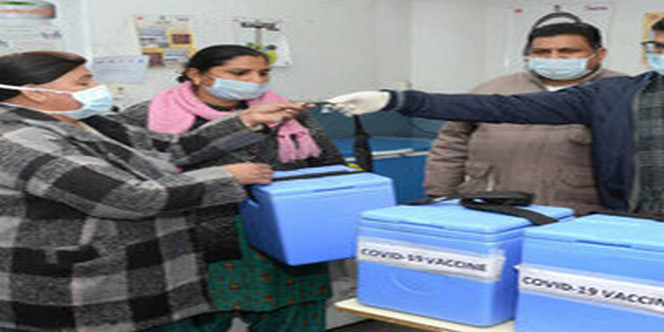Analysis
COVID Coverage: National Pandemic Policy – May 31st
The Amici Curiae and the Bench presented issues for the Union to address in their vaccination policy and the upcoming hearings.

Since there was a gap of 24 days between the last hearing and the one on the 31st, the Solicitor General Tushar Mehta gave an update on the situation. He mentioned that the supply of oxygen was no longer as pressing an issue due to the establishment of a task force. On the vaccine front, he stated that the projections show that the entire eligible population will be vaccinated by the end of the year.
The Amici Curiae Senior Advocates Ms. Meenakshi Arora and Mr. Jaideep Gupta highlighted the following issues to discuss.
-
The lack of a vaccine procurement and distribution policy from the Central Government is causing irregularities in vaccine distribution.
-
The vaccine distribution policy used for persons above the age of 45 in the first wave was an efficient one. The revised policy for persons aged 18-45 is ineffective and the change in policy is not justified.
-
Supply of vaccines has to be supported by policy which ensures that a citizen has an enforceable right for access to vaccines.
-
Two groups of persons are to be prioritised for vaccination
-
Vulnerable persons between the ages of 18 to 45
-
Persons in a certain social role, such as frontline workers, crematorium workers, and caregivers.
-
-
Central government has always supplied free vaccinations for diseases such as polio, cholera and smallpox. Similar policy has to be adopted for COVID-19 vaccination. Other countries are also following similar policies.
-
Between the second and third wave, all individuals will not be vaccinated. In the interim period, masking and social distancing are the only tools. However, there are no set quality standards for masks, or plan to make masks available to all. New strains are more contagious and will require a more vigorous masking strategy.
-
Disposal of bodies is both undignified as well as unsanitary. The practice of shallow graves and dumping of bodies into the river is unregulated, and can spread the disease further.
Justice Chandrachud raised the following questions to the Mr. Tushar Mehta regarding the Central government’s policies-
-
He noted that different municipal corporations are issuing tenders seeking vaccine supply from foreign suppliers which is problematic. The question of what happens when different municipal corporations with different financial resources are able to procure vaccines, and others are not was raised.
-
Justice Chandrachud mentioned that Article 1(1) of the Constitution states that Bharat is a Union of States. In a crisis such as the COVID pandemic, the Government of India needs to negotiate vaccine prices on behalf of the entire nation.
-
In the current scenario, the vaccination of persons between the ages of 18 and 45 is divided between the states and the central government in a 50-50 ratio. Out of the 50% that the state governments are supposed to provide, only half is meant to be free, while the remaining is supposed to be supplied by private hospitals. Justice Chandrachud noted that
-
The differentiation between the vaccination of above 45 years and below does not have a rationale.
-
Those who are supposed to access private healthcare cannot afford it.
-
This system fails to consider persons between the ages of 18-45 who live in rural areas, as most private hospitals with the ability to vaccinate are in urban areas.
-
-
Further, registration of persons for vaccination done under Cowin leaves out persons in rural areas who do not have access to the internet or computers. The online registration system assumes a level of digital literacy in India that is not consistent with the ground reality.
-
He also noted that providing free vaccines as noted by the Amicus curiae falls under right to public health under Article 21 of the Constitution
Justice Ravindra Bhat added that
-
A policy document needs to be drafted that will explain the Central Government’s approach. It is also necessary to provide a document explaining the rationale behind the policy.
-
The Central government has the right to set prices, yet no such action has been taken. Manufacturers have been left to set prices. The rationale behind this needs to be explained.
Justice Nageshwar Rao asked the Solicitor general whether the policy for the distribution of vaccination to persons between 18-45 is based only on population. He noted that depending on the portion of disabled persons, persons with comorbidities, and degree of illness, different populations will need different resources.
Based on these questions, the bench gave the Union of India two weeks time to file an affidavit addressing the concerns raised.
In the signed order dated May 31st, the Bench ordered that the Union file an affidavit to address the previously raised issues. The Bench further ordered that the affidavit must furnish information regarding –
-
Data regarding the percentage of the eligible population that has been vaccinated;
-
Data on the Central Governments vaccine purchase history. To include dates of procurement orders, quantity of vaccines ordered on each such date and the projected date of supply;
-
An outline for vaccination of remaining population;
-
Steps taken by the Central Government ensuring drug availability for mucormycosis (commonly known as the black fungus).
The Bench also ordered that the States and UT’s clarify their position on providing vaccinations free of cost.
